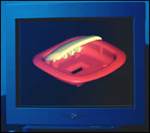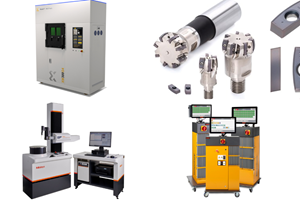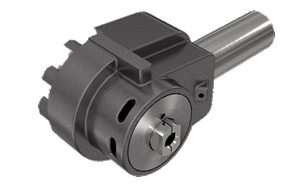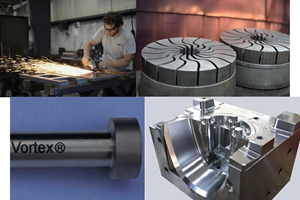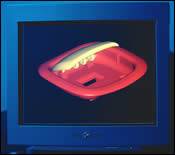Differentiating Yourself from the Competition
Rapid prototyping and manufacturing certificates help moldmakers gain a competitive edge in the marketplace.
The Society of Manufacturing Engineers' (SME) recent launch of a new three-level Rapid Prototyping and Manufacturing (RPM) Certificate program provides the following three important benefits for manufacturing professionals involved in rapid prototyping and moldmaking:
- A comprehensive understanding of the key concepts of rapid technology applications, systems and materials
- A chance for participants to identify themselves as masters of this fast-growing technology
- An opportunity to differentiate yourself from the competition
This program is designed to educate and validate the knowledge and expertise of moldmakers (and other interested professionals) who don't currently use RPM technologies, but have an interest in learning more. It also is for those professionals who require a higher understanding of RP and want to validate their knowledge and training, and helps those involved in customer relationships that require the use of RP to obtain expert knowledge that will make them more credible and effective. By differentiating themselves from others with less knowledge and expertise in selecting the right rapid technologies, the recipients of the new Rapid Prototyping and Manufacturing certificates will have an edge in the competitive marketplace.
The RTAM Community
SME's Technical Community Network offers a flexible framework for meeting the information needs of manufacturing professionals, companies and industries, and consists of seven technical communities representing the key areas within the manufacturing enterprise:
- Rapid technologies and additive manufacturing
- Product and process design and management
- Engineering materials applications
- Machining and material removal
- Forming and fabricating
- Automated manufacturing and assembly
- Manufacturing education and research
Each community includes a variety of technical groups that focus on niche processes or applications of the technologies within that community. Hundreds of members meet and/or collaborate regularly within the communities' technical groups. Their collaboration leads to improved knowledge exchange and information resources for members and others.
SME's Rapid Technology and Additive Manufacturing (RTAM) community is comprised of technical groups focused on rapid tooling, rapid prototyping, education and information exchange, reverse engineering, other additive manufacturing technologies, and their related applications. The RTAM community also provides information on emerging technologies, processes and applications, such as direct digital manufacturing, medical applications and MEMS/nanotechnology.
Rapid prototyping users can achieve associate, professional or master level certificates through this professional development program, developed by members of SME's Technical Community Network- RTAM Community. It began with an idea from the Education and Information Exchange Technical Group, and was developed by members of the group over an 18-month period. The group worked with industry professionals and SME headquarters staff to finalize the program.
Certificate Programs
The associate and professional level certificate programs involve intensive one- or two-day review courses—followed by an optional examination for each. The associate level certificate is appropriate for those looking to gain a basic understanding of rapid prototyping and additive manufacturing technologies-those who might be new to the industry and, particularly, those engaged in rapid prototyping management, purchasing, tooling or engineering. Professional level certificate holders must complete a three-day program that expands their current knowledge—by building significantly on the content of the associate-level certificate course—and then pass the exam. This certificate appeals to those who purchase many different types of prototypes, operate rapid prototyping equipment or those who are interested in the many different types of technologies, processes, materials and techniques available.
SME's master level certificate documents advances users' in-depth knowledge of methods, material and available technologies. Recipients demonstrate their professional knowledge through an exam designed to test their ability to order the correct part for a given application, their solid understanding of rapid prototyping capabilities as well as their full appreciation for the technology's limitations. Those seeking the master level certificate do not have to participate in a course.
This certification program can provide moldmakers with knowledge that improves effectiveness and capabilities, ensuring that they know when and how to incorporate RP technologies into design or manufacturing cycles. This will differentiate them from the competition while helping to make a difference both on the manufacturability and leadtimes of products, and on a company's—and customers'—bottom lines.
Related Content
Products and Services for Multiple Moldmaking Needs
New year, new technology roundup! Featured here is a collection of product offerings, from profile milling cutters to industry-specific CAD/CAM software to innovative hot work tool steels.
Read More3D Printing Enables Better Coolant Delivery in Milling Operations
Just like 3D printing enabled conformal cooling channels in molds, additive manufacturing is now being used to optimize coolant delivery in cutting tools.
Read MoreMold Materials, 3D Printing Technologies for Next-Gen Moldmaking
As moldmaking advances, so too do the materials and processes involved in their efficient production, including these latest mold materials and 3D printing technologies.
Read More3D Printing Innovates Hot Runner Manifold Design
Metal 3D printing combined with a conventionally machined manifold block overcomes flow shadows on valve gates and offers faster color changes while providing closer system pitch centerlines between cavities.
Read MoreRead Next
Validate the Design First with Rapid Prototyping
Rapid prototyping allows the mold builder to produce a functional model to validate part design, fit and function before the mold is produced.
Read MoreReasons to Use Fiber Lasers for Mold Cleaning
Fiber lasers offer a simplicity, speed, control and portability, minimizing mold cleaning risks.
Read MoreHow to Use Continuing Education to Remain Competitive in Moldmaking
Continued training helps moldmakers make tooling decisions and properly use the latest cutting tool to efficiently machine high-quality molds.
Read More
